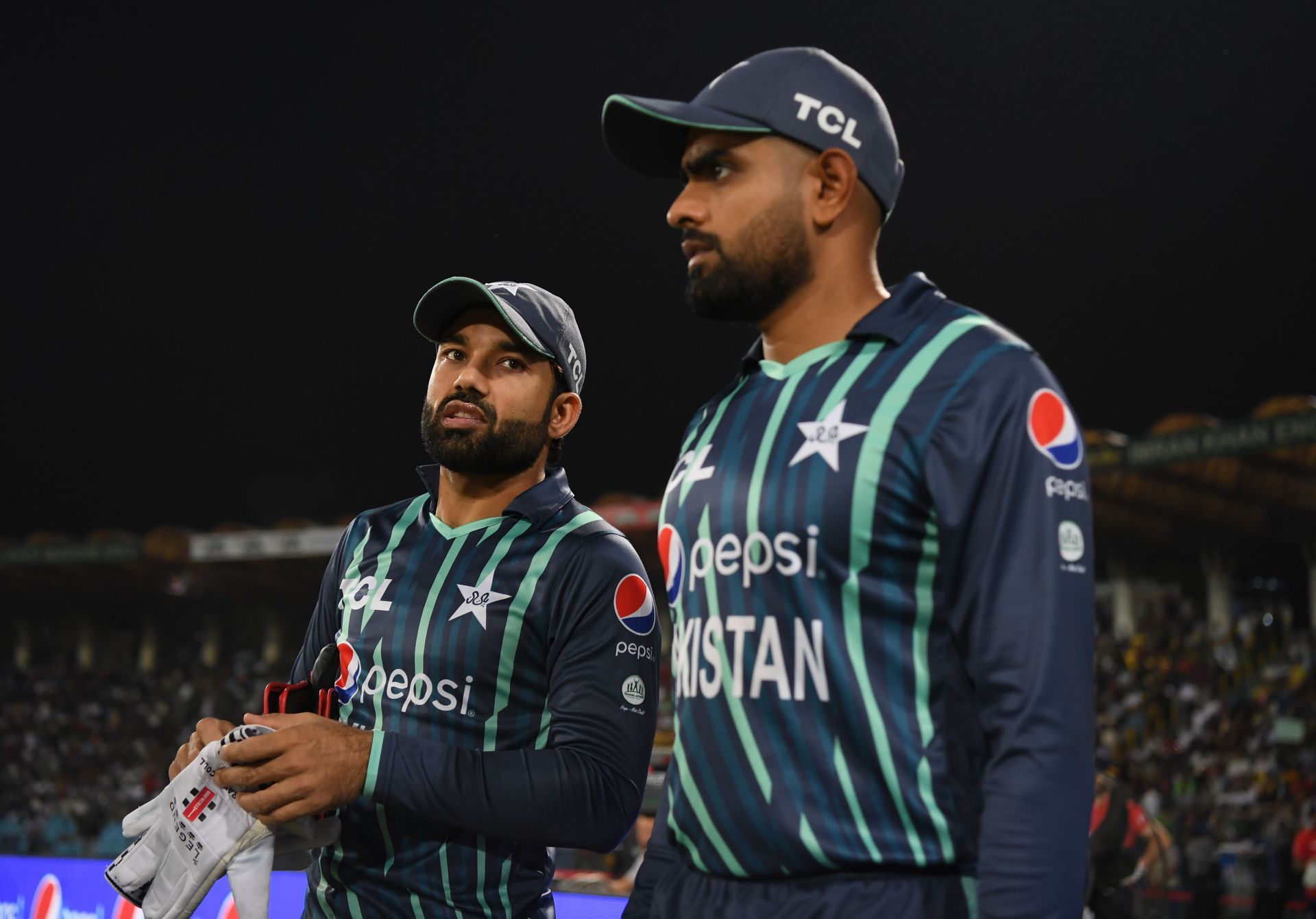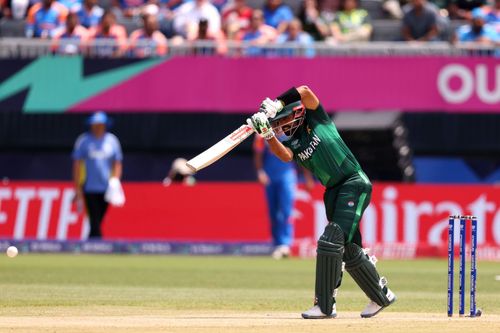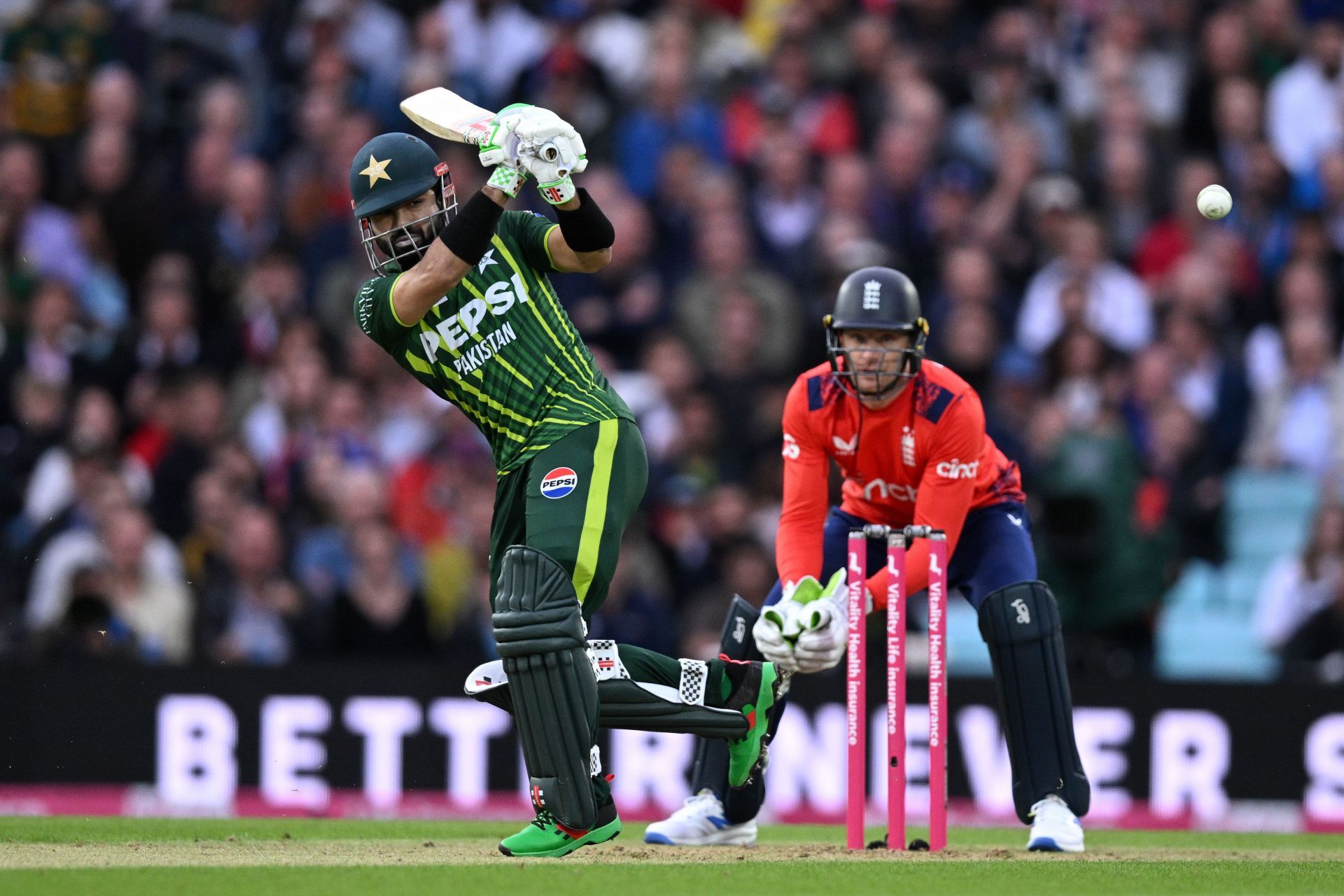
3 reasons why Pakistan must move on from Babar Azam and Mohammad Rizwan in T20Is
The defeats against the USA and India at the T20 World Cup 2024 will haunt the Pakistan cricket fans for a while. Their ouster from the event in the group stage itself was a shocker.
The Babar Azam-led team was expected to at least make it to the Super Eight round because the runners-up of the T20 World Cup 2022 were placed in Group A comprising India, the USA, Canada, and Ireland.
While the pitches in the USA were not conducive for batting, the senior pros especially, Babar Azam and Mohammad Rizwan, failed to make their experience count and despite wins against Canada and Ireland, Pakistan failed to progress to Super Eights.
The PCB could consider making radical changes in the Pakistan team for the shortest format and the skipper Babar Azam and keeper-batter Mohammad Rizwan could be the casualties.
Here is a look at three reasons why Pakistan should move beyond Azam and Rizwan in T20Is:
#1 Below par strike rate
In a T20 game, teams would expect their top order i.e. the top three batters to get them off to flying starts in powerplay overs.

Though Azam and Rizwan are experienced and scored heaps of runs at the top of the order, their strike rates have been below par in the powerplay overs.
Azam had a strike rate of just 101.67 in four matches in the T20 World Cup 2024. Rizwan, on the other hand, had a dismal strike rate of 90.91. The said strike rates are unacceptable in a T20 World Cup. Both Azam and Rizwan failed to maximize the advantage in powerplay overs and gave the opponent bowlers an advantage.
As far as their T20I careers are concerned, Azam has a strike rate of 129.09 and Rizwan 126.45. The said strike rates are unacceptable for top-order batters in today's day and age of T20 cricket.
#2 Failure in multi-nation tournaments in the shortest format
Babar Azam has failed to live up to the expectations of his fans in multi-nation tournaments in the T20 format. In the T20 World Cup 2021, he had a disappointing strike rate of 126.25.
The 2022 Asia Cup was another disastrous tournament for the Pakistan skipper. He managed to score just 68 runs in six innings at an average of 11.33 and a strike rate of below 108.
Though Pakistan reached the final of the T20 World Cup 2022, Azam managed to score just 124 runs at an average of 17.71 and a strike rate of around 93 in the tournament. The T20 World Cup 2024 is another tournament in which Azam has failed to score big.

Rizwan, too, has failed to impress in major tournaments. In the T20 World Cup 2022, he scored at a moderate average of 25 and a strike rate of 109.38. The T20 World Cup 2024 was indeed a nightmare for Rizwan as he scored only 110 runs in four innings at a strike rate of 90.91.
Thus both Azam and Rizwan have failed to make their experience count in big tournaments which has led to Pakistan's failure in the recent past in the shortest format.
#3 To build a team for the future
While both Azam and Rizwan are pillars for Pakistan in ODIs and Tests and an indispensable part of the team, their performances in the shortest format has come under the scanner for reasons mentioned above.
The next T20 World Cup is around two years away and Pakistan need to build a team for the future. The likes of Usman Khan and Saim Ayub need to be groomed for the future.
Though Usman Khan failed to impress in the T20 World Cup 2024, he had a breakthrough in PSL 2024. In seven innings, he had an average of over 100 and a strike rate of 164.12.
Saim Ayub, a 22-year-old youngster, impressed in PSL 2024 and had an astounding strike rate of 157.53.
The said youngsters should be groomed in bi-lateral series and be given a consistent run before making them play in T20 World Cups.
Pakistan could consider opening the batting with Fakhar Zaman as he is a dangerous batter in the powerplay overs and can create pressure on the opponents.
Pakistan need to build a team for the future and sadly their star batter Babar Azam and keeper-batter Mohammad Rizwan do not fit into the scheme of things in the shortest format.